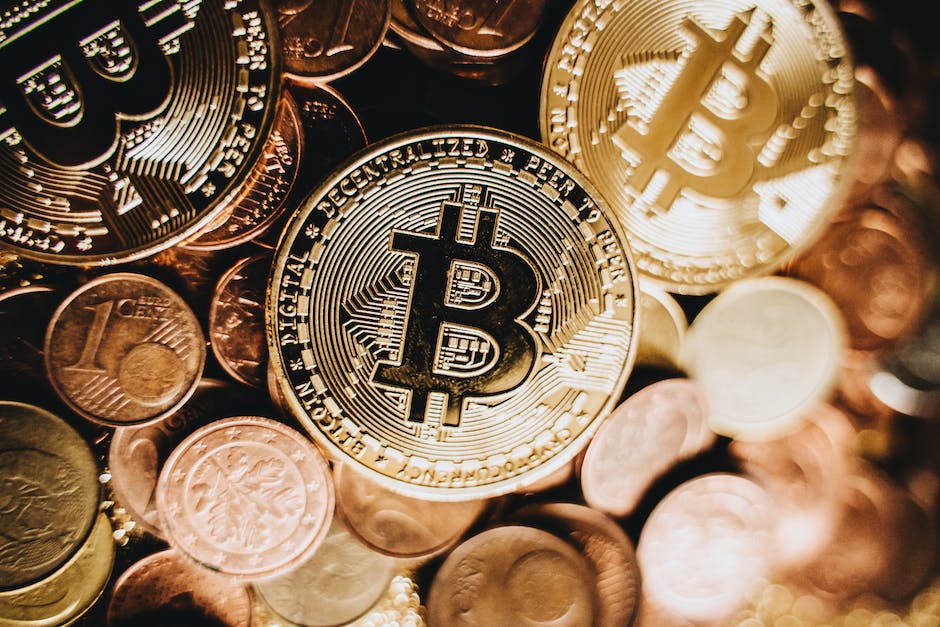
The introduction section:
In today’s fast-paced and ever-evolving world, technology has revolutionized various industries, including real estate. With the advent of blockchain technology, a new era of investment opportunities has emerged, bringing forth a concept known as real estate tokenization. This groundbreaking innovation allows investors to fractionalize property assets into digital tokens, enabling individuals to invest in real estate without traditional barriers. Real estate tokenization not only diversifies investment options but also provides liquidity, transparency, and security to the modern investor.
In this blog post, we will delve deeper into the world of real estate tokenization and explore how this cutting-edge technology is transforming the landscape of investment. Whether you are a seasoned investor or someone looking to enter the real estate market, understanding the concept of tokenization and its implications is crucial to staying ahead in this digital age. So, let’s explore the ways in which real estate tokenization is advancing with technology and carving a new path for the modern investor.
Advantages of real estate tokenization for investors (2)
Real estate tokenization has emerged as a game changer in the world of real estate investment. With the integration of technology into the real estate sector, investors are now presented with unique opportunities and advantages that were previously not available. In this section, we will explore two key advantages of real estate tokenization for investors:
1. Increased Liquidity: One of the primary advantages of real estate tokenization is the increased liquidity it offers to investors. Traditionally, real estate investments have been known for being illiquid, with investors having to hold onto their assets for extended periods before being able to sell them. However, by tokenizing real estate assets, these properties can be divided into smaller, more manageable units, allowing investors to buy and sell fractionalized shares on a digital platform. This instantly unlocks liquidity for investors, providing them with the ability to exit their investments more easily and rapidly. By eliminating the need for third-party intermediaries, tokenization simplifies the process and reduces costs associated with the sale and transfer of property.
2. Enhanced Accessibility: Real estate tokenization has also brought about increased accessibility, making it possible for investors of all backgrounds and financial capabilities to access lucrative real estate opportunities. Traditionally, investing in real estate required substantial capital, limiting it to high-net-worth individuals or institutional investors. However, through tokenization, fractional ownership is made possible, enabling investors to enter the real estate market with smaller investments. This democratization of access allows a wider range of investors to participate and diversify their portfolios by investing in different real estate assets spread across various locations and property types.
Moreover, real estate tokens can be easily traded on a digital platform, eliminating geographical restrictions and allowing investors from different parts of the world to participate in real estate investment opportunities that were previously inaccessible. The transparency and ease of access provided through tokenization enable investors to research, analyze, and make informed decisions about potential investments with greater convenience.
In conclusion, the advantages of real estate tokenization for investors are clear. With increased liquidity and enhanced accessibility, investors can now tap into the lucrative real estate market more easily and efficiently. As technology continues to advance, real estate tokenization is expected to reshape the industry, unlocking new opportunities for investors and revolutionizing the way we approach real estate investments.
Increased accessibility and liquidity through tokenization (3)

With the advent of technology and the rise of blockchain, various industries are witnessing a significant transformation in the way they operate. Real estate, being one of the largest and most traditional sectors, is no exception to this technological revolution. One of the most exciting developments in the real estate industry is the concept of tokenization.
Tokenization refers to the process of converting real-world assets, such as properties, into digital tokens on a blockchain network. These tokens can then be easily traded, bought, or sold, providing increased accessibility and liquidity for investors. Here are three key ways in which tokenization enhances accessibility and liquidity in real estate investment:
1. Fractional Ownership: Traditionally, investing in real estate required substantial capital as investors had to purchase entire properties or units. Tokenization breaks down the barriers to entry by allowing investors to own a fraction of a property. With fractional ownership, individuals can invest as much or as little as they want, opening up real estate investment opportunities to a wider pool of investors.
2. Continuous Trading: Tokenization enables real estate assets to become tradable 24/7 on cryptocurrency exchanges. This breaks free from the traditional limitations of real estate transactions, which often involve lengthy processes, paperwork, and regulatory hurdles. By leveraging blockchain technology, tokenization offers a seamless and efficient way for investors to buy, sell, or trade their real estate assets with ease.
3. Global Reach: Tokenization has the potential to unlock international investment opportunities by eliminating geographical constraints. Investors can now access real estate markets from around the world without the need for physical presence. Digital tokens provide a standardized format that transcends borders, making it easier for investors to diversify their portfolios and seize lucrative opportunities in emerging markets.
With increased accessibility and liquidity, tokenization is transforming the real estate investment landscape. However, as with any innovation, there are still challenges and regulatory considerations that need to be addressed. Nonetheless, the potential benefits of real estate tokenization are undeniable, offering investors the ability to participate in the market in a more efficient and flexible manner.
As technology continues to advance, it is crucial for investors and industry professionals to stay abreast of these changes to harness the opportunities that lie ahead. Real estate tokenization is poised to shape the future of the industry, and those who embrace this evolution are likely to reap the rewards in the modern investment landscape.
Reduction of investment barriers with fractional ownership (4)

In today’s fast-paced and dynamic world, technology is revolutionizing various industries, and real estate is no exception. One of the most notable innovations in recent years is the concept of real estate tokenization. This process involves converting the value of a property into digital tokens that can be bought, sold, or traded on a blockchain platform.
An exciting aspect of real estate tokenization is the reduction of investment barriers through fractional ownership. Traditionally, purchasing a property involved large sums of money and extensive legal procedures. This created significant barriers for individuals who wished to diversify their investment portfolio or enter the real estate market. However, with the introduction of fractional ownership through tokenization, these barriers are being shattered.
Fractional ownership allows investors to purchase a smaller portion or “fraction” of a property, which is represented by a specific number of tokens. This opens up the real estate market to a wider range of investors, including those who may have limited capital. By investing in tokens, individuals can now participate in lucrative real estate opportunities that were previously out of reach.
Furthermore, fractional ownership offers investors the flexibility to diversify their portfolios easily. Instead of concentrating all their investment in one property, investors can spread their resources across multiple properties or even hold a stake in different types of properties, such as residential, commercial, or industrial. This diversification mitigates risk and provides investors with a more balanced and stable portfolio.
The introduction of real estate tokenization also brings enhanced liquidity to the market. In the past, selling or liquidating a property could be a complex and time-consuming endeavor. However, with tokenization, investors can trade their tokens instantly on various cryptocurrency exchanges. This increased liquidity facilitates quicker transactions and allows investors to easily enter and exit the real estate market whenever they desire.
Moreover, the transparency and security offered by blockchain technology further strengthen the appeal of fractional ownership. Every transaction and ownership record is maintained on a blockchain, providing a tamper-proof and auditable trail. This transparency ensures that investors have a clear understanding of their rights and ownership, thus minimizing the risk of fraud or disputes.
In conclusion, real estate tokenization and fractional ownership have revolutionized the way individuals invest in properties. By reducing investment barriers, this innovative approach enables a more inclusive real estate market and empowers a broader range of investors to enter the industry. As technology continues to advance, the benefits of fractional ownership through tokenization will undoubtedly continue to shape the future of the real estate sector.
Enhanced transparency and security of transactions (5)

In the ever-evolving world of real estate investing, technology continues to reshape the industry, offering innovative solutions and disrupting traditional practices. One such breakthrough that has gained considerable attention is real estate tokenization. By tokenizing properties, investors can now access previously illiquid assets and trade fractional ownership of real estate through digital tokens. This advancement not only opens up new opportunities for investment, but it also introduces enhanced transparency and security to the traditionally opaque world of real estate transactions.
Transparency is a vital element in any business transaction, and real estate is no exception. Historically, the lack of transparency in property deals has made it challenging for investors to gain a comprehensive understanding of the market and ensure that their interests are protected. However, with real estate tokenization, every transaction is recorded on a blockchain, creating an immutable digital ledger. This transparent record of ownership and transactions can be accessed by all parties involved, including potential investors, ensuring complete visibility and eliminating doubts or uncertainties.
Moreover, tokenization introduces a level of security that previously seemed unattainable in real estate transactions. Blockchain technology, the backbone of tokenization, is renowned for its robust security features and resistance to fraudulent activities. By leveraging this technology, tokenized real estate assets can be securely traded, ensuring that ownership rights are protected and removing the need for intermediaries in the process. Smart contracts, built upon blockchain, automate and enforce contractual terms, reducing the risk of fraud and providing reassurance to investors.
Additionally, real estate tokenization also enhances security by reducing the risk of asset manipulation or misrepresentation. Traditional land registry systems have been prone to fraud, with cases of property tampering and ownership disputes. With tokenization, the immutable nature of blockchain ensures that every transaction is traceable and verifiable. This eliminates the possibility of fraudulent activities, increasing investor confidence and making real estate investments more attractive.
The enhanced transparency and security offered by real estate tokenization pave the way for a more efficient and trusted market. Investors can make informed decisions based on reliable and up-to-date information, mitigating the risks associated with traditional real estate investments. Moreover, the elimination of intermediaries not only reduces costs but also expedites the entire transaction process, allowing for quicker capital deployment and liquidity.
As technology continues to revolutionize industries, including real estate, embracing tokenization opens doors to a new era of investment opportunities. With enhanced transparency and security as its cornerstones, real estate tokenization offers a modern solution for savvy investors seeking to advance their portfolios in an ever-changing landscape. By leveraging technology, the potential for growth, diversification, and profitability in the real estate market continues to expand, setting the stage for a more inclusive and accessible future for all investors.
Exploring the potential of blockchain technology in tokenization (6)

Blockchain technology has revolutionized various industries, and its impact on the real estate sector has been no exception. Tokenization, the process of digitizing assets as tokens on a blockchain, has emerged as a promising application of this technology in real estate investment.
Tokenization offers several benefits that make it an attractive option for modern investors. First and foremost, it provides increased liquidity by allowing fractional ownership of real estate assets. Traditionally, investing in real estate required substantial capital, making it inaccessible to many individuals. However, tokenization breaks down these barriers by enabling investors to buy and sell fractional shares of properties. This opens up a whole new world of investment opportunities and allows for smaller investors to participate in lucrative real estate ventures.
Moreover, tokenization improves transparency and reduces the reliance on intermediaries. The blockchain records every transaction, ensuring an accurate and immutable ownership history. This eliminates the need for costly and time-consuming paperwork, making the entire investment process more streamlined and efficient. Additionally, smart contracts can be deployed on the blockchain to automate certain aspects of investment management, such as rent collection and distribution of profits. This not only reduces administrative costs but also ensures greater transparency and trust among stakeholders.
From a risk management perspective, tokenization also offers benefits. By allowing fractional ownership, investors can diversify their portfolios across multiple properties, thereby spreading risk. Moreover, tokenization provides greater accessibility to global real estate markets, enabling investors to diversify across different geographical locations. This diversification can help mitigate risks associated with volatility and fluctuations in local markets.
Furthermore, tokenization can unlock a broader pool of investors, including those from different countries. By tokenizing real estate assets, investors can overcome the barriers posed by international regulations and capital controls. It opens up the possibility for cross-border investments, attracting a wider range of potential investors and increasing market liquidity.
Overall, exploring the potential of blockchain technology in tokenization offers immense opportunities for the modern investor in the real estate industry. The increased liquidity, transparency, efficiency, and risk management benefits provided by tokenization make it an attractive option for individuals looking to diversify their investment portfolios. As technology continues to advance, it is evident that real estate tokenization will play a crucial role in reshaping the way we invest in properties, offering a more inclusive and efficient approach to real estate investment.
Case studies of successful real estate tokenization projects (7)

In recent years, real estate tokenization has emerged as a game-changer for the modern investor. By leveraging blockchain technology, this innovative approach has opened up new opportunities in the world of real estate investment. Let’s take a closer look at seven case studies of successful real estate tokenization projects that have generated remarkable results.
1. The St. Regis Aspen Resort: In 2018, the luxury ski resort partnered with Indiegogo to raise funds through a security token offering (STO). This allowed investors to own a fractional share of the property, providing an alternative investment opportunity for individuals who couldn’t afford to buy the entire resort. The project successfully raised $18 million within a month.
2. The Shard, London: In 2020, the owners of The Shard, one of London’s iconic skyscrapers, announced plans to tokenize the property. The goal was to enable smaller investors to access a previously exclusive asset. The successful tokenization of The Shard allowed investors to enjoy the benefits and potential returns of owning a portion of the landmark building.
3. The Aspen Digital Token: In 2019, a luxury condominium project known as The Aspen received massive attention for tokenizing its $18 million development. The initiative allowed investors to gain exposure to the highly sought-after real estate market in Aspen. This successful tokenization demonstrated the feasibility and viability of using blockchain technology in real estate investment.
4. The Miami Art House: A unique case in the real estate tokenization space, the Miami Art House aimed to revolutionize art investment through tokenized ownership. The project allowed art enthusiasts to own a fractional stake in valuable art pieces, facilitating the democratization of the art market. By leveraging the power of blockchain, investors gained liquidity and transparency, making art investing more accessible and secure.
5. The Overstock OSTKP Security Token: Overstock, a well-known e-commerce company, embarked on a journey to tokenize its shares in 2019. The security token, referred to as OSTKP, was one of the first issued by a publicly traded company. This move allowed Overstock to unlock liquidity and attract a broader range of potential investors, showcasing the potential of real estate tokenization as an investment vehicle.
6. BrickMark: In 2021, BrickMark launched a security token offering for prime real estate properties across Europe. The company aimed to revolutionize the traditional real estate market by enabling fractional ownership through blockchain technology. By tokenizing prestigious properties, BrickMark provided investors with a new avenue for diversification and potential returns.
7. AspenCoin: Another successful example of real estate tokenization is AspenCoin, which offered investors a chance to own fractional shares in the St. Regis Aspen Resort. Through the security token offering, investors gained exposure to the luxury real estate market, with increased liquidity as an added benefit.
These case studies highlight the potential and success of real estate tokenization in modern investment. Each project demonstrates how blockchain technology is reshaping the real estate industry, allowing investors to access previously exclusive assets, gain diversification, and enjoy liquidity. As real estate tokenization continues to evolve, it presents an exciting frontier for both investors and the business world at large.
Addressing concerns and risks associated with real estate tokenization (8)

In the pursuit of modernizing the real estate industry, the concept of tokenization has emerged as a revolutionary solution for investors. By converting real estate assets into digital tokens on a blockchain, tokenization aims to enhance accessibility, liquidity, and transparency. However, as with any innovative technology, concerns and risks are bound to arise. In this section, we will address some of these concerns, ensuring that investors can make informed decisions while navigating the world of real estate tokenization.
1. Regulatory Compliance: One of the main concerns surrounding real estate tokenization is related to regulatory compliance. As this technology introduces a new asset class, it is essential to ensure that it adheres to existing laws and regulations. Investors should seek platforms that comply with relevant financial and securities regulations to safeguard their investments.
2. Security Measures: The security of digital tokens and investor data is a paramount concern. Prior to investing, it is crucial to evaluate the security measures implemented by the tokenization platform. Strong encryption methods, multi-factor authentication, and robust verification procedures should be in place to protect both the investors’ tokens and personal information.
3. Market Volatility: Real estate tokenization, like any investment, is subject to market fluctuations and volatility. Investors should be aware that the value of tokens can fluctuate and may not always reflect the underlying real estate asset’s market value. Conducting thorough market research and understanding the specific factors influencing the real estate market can help mitigate this risk.
4. Lack of Liquidity: While tokenization aims to enhance the liquidity of traditionally illiquid assets like real estate, some concerns remain regarding the ease of selling tokens on secondary markets. Investors should consider the platform’s liquidity mechanisms and evaluate the market demand for such tokens before making investment decisions.
5. Platform Reliability and Reputation: As with any investment, the credibility, reliability, and reputation of the tokenization platform are crucial considerations. Investors should research the platform’s track record, user reviews, and reputation within the industry to ensure they are dealing with a trustworthy and reliable entity.
6. Smart Contract Risks: Real estate tokenization relies heavily on the use of smart contracts, digitized self-executing contracts on the blockchain. However, these contracts may be susceptible to bugs, vulnerabilities, or hacking. Before investing, investors should conduct due diligence on the smart contract technology and assess the platform’s measures to mitigate such risks.
7. Legal Implications: Tokenization involves the transfer of ownership and fractionalization of real estate assets, which may have legal implications. Investors should seek legal advice to understand the legal framework and implications of investing in tokenized real estate assets.
By addressing these concerns and risks associated with real estate tokenization, investors can approach this emerging technology with confidence. It is vital to conduct thorough research, due diligence, and seek expert advice to mitigate risks and ensure a successful investment journey in the evolving world of real estate tokenization.
Regulatory challenges and considerations in tokenizing real estate assets (9)

Tokenization of real estate assets has emerged as a cutting-edge technology trend in the investment realm. However, as with any new innovation, it is crucial to be aware of the regulatory challenges and considerations associated with real estate tokenization.
One of the key regulatory challenges revolves around compliance with existing securities laws. Tokenizing real estate assets involves converting tangible properties into digital tokens, which are then offered for investment. These digital tokens may be classified as securities, and therefore, their issuance and trading must comply with the securities regulations of the jurisdiction in which they are offered. It is essential for investors and issuers to navigate through these regulations to ensure legality and avoid any potential legal repercussions.
Furthermore, due diligence becomes a crucial aspect when tokenizing real estate assets. Investors need to be assured of the legitimacy and quality of the real estate projects being tokenized. This includes conducting thorough reviews of property titles, the financial viability of the project, and compliance with local zoning and building regulations. These due diligence measures are necessary to protect both the investor and the issuer, ensuring transparency and credibility in the tokenization process.
Another consideration lies in the transparency and liquidity of real estate tokens. While tokenization enables fractional ownership of real estate, which can increase liquidity and affordability, appropriate mechanisms must be in place to ensure transparency, pricing accuracy, and ease of trading. Investors should have access to reliable information about the assets they are investing in, including property valuations, projected returns, and potential risks. Additionally, platforms facilitating the trading of real estate tokens should ensure compliance with anti-money laundering (AML) and know-your-customer (KYC) regulations to mitigate the risk of fraud and illicit activities.
Finally, jurisdictions have different approaches and regulations when it comes to real estate tokenization. It is important to understand the legal landscape and recent developments in the specific country or region where the tokenization is taking place. Engaging legal experts and seeking regulatory guidance can help navigate the intricacies of local laws, ensuring compliance and reducing the potential for legal disputes.
In conclusion, while real estate tokenization holds immense potential in transforming the investment landscape, understanding and addressing the regulatory challenges and considerations are critical for its success. Complying with securities laws, conducting thorough due diligence, ensuring transparency and liquidity, and staying informed about jurisdiction-specific regulations are vital steps towards advancing with technology and embracing real estate tokenization as a modern investment opportunity.

